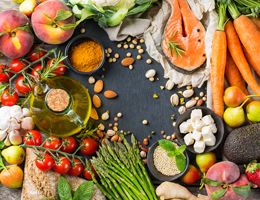C.G.H. Medical Center issued the following announcement on Feb. 12.
Do the foods you eat fight or promote inflammation?
For your heart's and brain's sake, you might want to know, suggests a study in the Journal of the American College of Cardiology. Researchers found a lower risk of heart disease and stroke among those who tend to eat a lot of "anti-inflammatory" foods.
Inflammation overload?
When you think of inflammation, you probably think of the redness and swelling that can occur with an infection or injury. That's a normal immune response. But a similar process can happen inside your body for reasons other than infection, according to the Academy of Nutrition and Dietetics. Over time, this inflammation might create problems in your heart and blood vessels that can lead to a heart attack or stroke.
What does this have to do with your diet? Some foods appear to promote chronic inflammation, while other foods might work help lower it.
Insights from a long-running study
Researchers analyzed the eating patterns of more than 210,000 healthy men and women who were part of several ongoing studies of U.S. nurses and health professionals. The participants answered questions about their dietary habits every four years.
Compared to those who ate anti-inflammatory foods, those who ate pro-inflammatory foods had a:
- 46% higher risk of heart disease.
- 28% higher risk of stroke.
- Green leafy vegetables, such as kale, spinach and cabbage.
- Yellow vegetables.
- Whole grains.
- Fruits.
- Coffee.
- Tea.
- Refined carbs, such as sweets, white bread and other highly processed foods.
- Fried foods.
- Sodas and other sugary drinks.
- Red and processed meats.
- Organ meats.
Research into anti-inflammatory foods is ongoing. The best way to ensure that you're getting these foods (along with other needed nutrients) is to aim for a balanced and varied diet, according to the academy.
That's one that includes:
- Plenty of fruits and veggies (about half your plate).
- Lean proteins.
- Unsaturated fats for cooking (such as olive or canola).
- Low-fat or nonfat dairy.
- Whole grains.
- Fish a few times a week.
- Limited amounts of highly processed foods, added sugars, sodium, and saturated and trans fats.

Source: C.G.H. Medical Center





 Alerts Sign-up
Alerts Sign-up